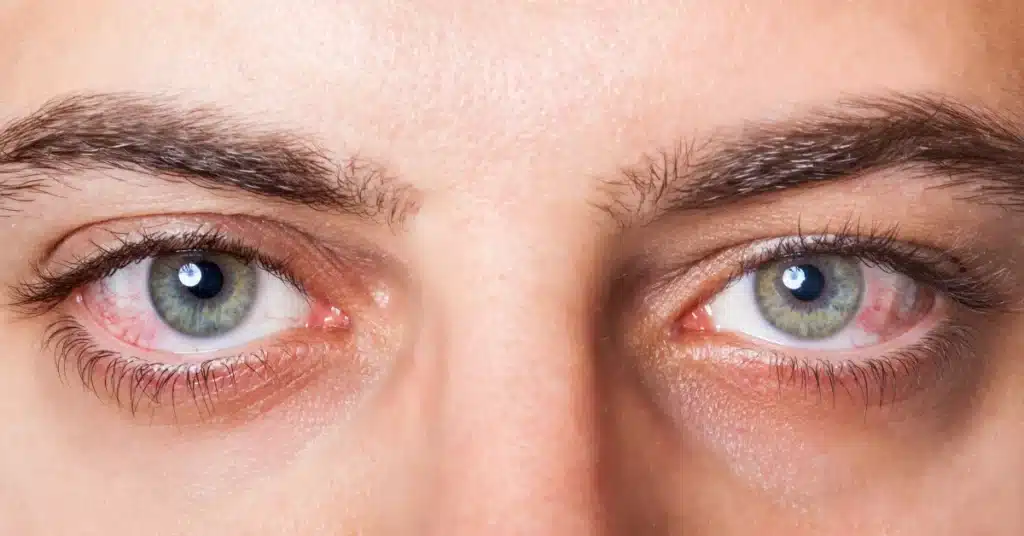Cataract is a common eye condition that can cause cloudy eye lenses and other vision problems.
Fortunately, Cataract surgery is an effective and common treatment option that can help restore clear vision.
But can Cataracts come back after surgery?
Let us explore the answer to the above question and what to expect after Cataract surgery.
Can Cataracts come back after surgery?
No, Cataracts don’t come back after the surgery.
Cataract surgery is one of the most effective and commonly performed surgical procedures.
The success rate of the surgery is around 90 to 95%, and patients experience an improvement in vision.
Therefore, Cataract surgery is safe, but some complications may arise during the postoperative period.
These complications may include infection, inflammation, and Posterior Capsule Opacification (PCO).
PCO is a common Cataract surgery complication that can mimic the Cataract symptoms.
The condition is also known as Secondary Cataracts. It happens when the capsule that holds the artificial lens in place becomes cloudy.
Consult an eye expert for a proper diagnosis if you experience Cataract symptoms.
Does a person need Cataract surgery twice?
No, an individual does not need Cataract surgery twice.
However, people who experience PCO after Cataract surgery may require the appropriate treatment.
PCO can be treated through a quick and painless laser procedure called YAG Laser Capsulotomy.
The doctors remove the cloudy patches in the procedure using a laser beam.
YAG Laser Capsulotomy is a safe and effective method that may result in improved vision after the procedure.
However, some side effects of YAG Laser Capsulotomy include increased eye pressure (Glaucoma), eye infections, and more.
Consult an eye expert and get prescription medicines if you experience such side effects.
What to expect after Cataract surgery?
 Source: Antonio_Gravate
Source: Antonio_GravateAn individual may not have full vision for a few days after Cataract surgery.
People may also experience common Cataract surgery side effects like Red Eye, cloudy vision, watery eyes, and more.
The doctors may prescribe antibiotic, steroid, and anti-inflammatory eye drops to help with the side effects.
As a result, most people will feel relief from the side effects within a few days.
One should follow the doctor’s instructions for an effective full recovery. The aftercare instructions include the following:
- Avoid rubbing the eyes
- Do not wear eye makeup
- Avoid eye lenses
- Do not engage in risky physical activities
- Follow proper eye hygiene
- Taking the prescribed medicine on time
One should also avoid driving until the doctor confirms that it is safe to do so.
Key takeaways
Cataract surgery is a common treatment option to help with Cataracts and restore clear vision.
However, many are curious about, “Can Cataracts come back after surgery?”
No, the recurrence of Cataracts after surgery is impossible, as the surgical removal of the cloudy lens destroys the Cataract.
However, postoperative complications like Posterior Capsule Opacification may resemble Cataract symptoms.
The doctors may recommend YAG Laser Capsulotomy to help treat PCO by removing the cloudy patches.
However, consult an eye expert before starting any treatment.
Frequently Asked Questions
Can you have Cataracts twice?
No, one cannot experience Cataracts again after removing them surgically. However, individuals who have had Cataract surgery may experience postoperative complications that resemble Cataract symptoms.
How common is it for Cataracts to come back?
Cataracts can’t come back after surgery. People should follow the aftercare instructions given by the doctor to reduce the risk of any complications.
How many years does Cataract surgery last?
Cataract surgery is a permanent treatment option and lasts a lifetime. However, one may need an additional treatment option like YAG Laser Capsulotomy to help treat Posterior Capsule Opacification (PCO), a common Cataract surgery complication.
What age is best for Cataract surgery?
There is no specified age for Cataract surgery. The doctor may recommend the surgical procedure when Cataracts start to affect daily activities.
What are the causes of Cataracts?
Cataracts are mainly caused by natural aging and cloud the eye’s lens. However, the other causes of Cataracts include genetics, exposure to ultraviolet radiation, smoking, Diabetes, and more. The factors break down the proteins in the lens and result in the development of Cataracts.
When referencing outside resources, GoodrxMedicine always provides full citations. To learn more about the measures we use to maintain the quality of our content, please review our Content Information Policy.











